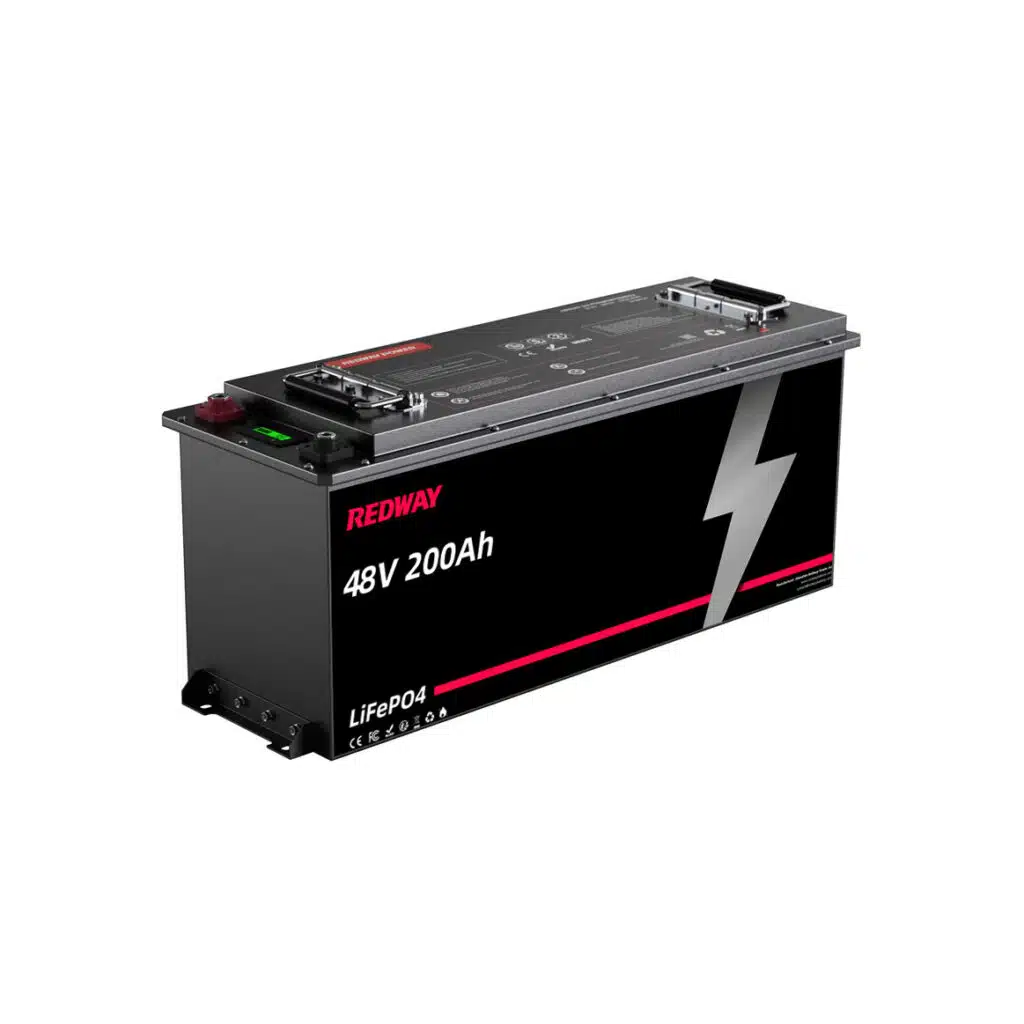Are you tired of energy storage solutions that just don’t cut it? Look no further than the 48V LiFePO4 battery. This revolutionary battery is quickly gaining popularity for its reliability, efficiency, and longevity. In this blog post, we’ll dive into everything you need to know about LiFePO4 batteries and specifically why the 48V option is a game-changer. Say goodbye to unreliable power sources and hello to a bright future with the power of LiFePO4 technology!

#post_seo_title
The Different Types of LiFePO4 Batteries
LiFePO4 batteries have been gaining popularity in recent years as a reliable and efficient energy storage solution. There are several different types of LiFePO4 batteries available on the market, each with its own unique characteristics.
The first type is cylindrical LiFePO4 batteries, which are commonly used in applications such as electric vehicles and power tools. They come in various sizes and capacities to meet different needs.
Another type is prismatic LiFePO4 batteries, which have a flat rectangular shape that makes them ideal for use in portable electronics like laptops and smartphones. They can also be stacked together to create larger battery packs.
The third type is pouch LiFePO4 batteries, which are lightweight and flexible making them perfect for use in wearable technology like smartwatches or fitness trackers.
The choice between these three types will depend on your specific needs regarding capacity, size requirements, portability, among other factors. Ultimately it’s essential to consider all options before making your final decision.
Pros and Cons of a LiFePO4 Battery
LiFePO4 batteries have been gaining popularity in recent years due to their reliable energy storage capabilities. However, like any other technology, they come with their own set of pros and cons.
One of the main advantages of LiFePO4 batteries is their high cycle life, which means they can be charged and discharged many times without significant loss in capacity. They are also non-toxic and environmentally friendly compared to other types of batteries that use hazardous materials.
Another advantage is their ability to provide a constant voltage throughout the discharge process, ensuring consistent power output. This makes them ideal for applications where stable power supply is critical.
On the downside, LiFePO4 batteries are more expensive than some alternatives such as lead-acid or nickel-cadmium batteries. They also have lower energy density which means they require more physical space for a given amount of stored energy compared to other battery chemistries.
Additionally, LiFePO4 batteries have lower maximum charge rates compared to some lithium-ion chemistry cells. This limitation may not make them suitable for applications that require fast charging capability.
While there are both advantages and disadvantages associated with using LiFePO4 batteries as an energy storage solution; ultimately it comes down to your specific needs and requirements when choosing between various battery technologies available in today’s market.
What are the benefits of a 48V LiFePO4 Battery?
A 48V LiFePO4 battery is a type of lithium-ion phosphate battery that offers a range of benefits over other types of batteries. Here are some of the main advantages of using a 48V LiFePO4 battery:
– Longer lifespan: One of the key benefits of this type of battery is its long lifespan. It can last for up to ten years, which is significantly longer than most other types of batteries on the market.
– High energy density: Another advantage is its high energy density, meaning it can store more energy in a smaller space compared to other batteries. This makes it ideal for use in applications where space is limited.
– Safe and stable: Unlike some other lithium-ion batteries, LiFePO4 batteries are known for their safety and stability. They have lower risk factors when it comes to overheating or catching fire.
– Fast charging: A 48V LiFePO4 battery can be charged quickly, allowing you to get back up and running faster than with other types of batteries.
A 48V LiFePO4 battery offers numerous advantages over traditional lead-acid or nickel-cadmium batteries. With their long lifespan, high energy density, safety features and fast charging capabilities they make an excellent choice for applications ranging from electric vehicles to renewable energy storage systems.
How to choose the right size battery for your needs
Choosing the right size battery is crucial when it comes to reliable energy storage. The size of your battery will depend on your energy needs and usage habits. A smaller battery may be sufficient for a residential property, while larger batteries are required for commercial or industrial settings.
To determine what size battery you need, consider your average daily energy consumption. Look at your electricity bill to see how many kilowatt-hours (kWh) you use per day. Then, factor in any additional energy needs that may arise from time to time, such as running power tools or charging an electric vehicle.
Next, think about the duration of backup power you require during outages. If you only need a few hours of backup power, then a smaller battery might suffice. However, if you anticipate longer periods without grid electricity due to frequent blackouts or extreme weather conditions, then a larger capacity 48V LiFePO4 Battery would be ideal.
Consider the space available for installing the battery system and ensure that there’s enough room for ventilation and maintenance access. Also keep in mind that some jurisdictions have regulations regarding placement and installation of backup batteries.
By taking these factors into account before purchasing your 48V LiFePO4 Battery system ,you can ensure that it meets all of your requirements effectively and provides reliable energy storage whenever needed!
Comparison of LiFePO4 batteries with other types of batteries
When it comes to energy storage, there are several types of batteries available in the market. Lithium iron phosphate (LiFePO4) batteries are among them and have gained popularity due to their reliability and safety compared to other battery chemistries.
One significant advantage of LiFePO4 batteries is their long lifespan. They can last up to 10 years or more, which is much longer than lead-acid or nickel-based batteries. Additionally, they offer a higher discharge rate without losing capacity, making them ideal for high-demand applications such as electric vehicles and renewable energy systems.
Compared to other lithium-ion battery types like cobalt oxide or manganese oxide, LiFePO4 offers superior thermal stability and safety features that prevent overheating and potential fires. Moreover, they do not contain toxic chemicals like cadmium or mercury found in some traditional battery technologies.
While LiFePO4 may have lower energy density compared to newer lithium-ion chemistries such as NMC or LFP/SiC composites, they make up for it with better cycle life performance and improved safety standards – critical factors when designing reliable energy storage solutions.
While each battery chemistry has its strengths and drawbacks depending on your specific application needs; choosing a reliable solution that maximizes lifespan while ensuring safety should be at the forefront of any decision-making process.
FAQs about LiFePO4 batteries
FAQs about LiFePO4 batteries:
1. How long do LiFePO4 batteries last?
LiFePO4 batteries can last up to 10 years or more, depending on the usage and maintenance.
2. Are LiFePO4 batteries safe?
Yes, LiFePO4 batteries are safer than other types of lithium-ion batteries because they have a stable chemical structure that’s less prone to overheating and catching fire.
3. Can I use a regular charger for my LiFePO4 battery?
No, you should always use a charger specifically designed for LiFePO4 batteries to avoid damaging them or causing safety hazards.
4. What temperature range is suitable for LiFePO4 battery storage?
LiFePO4 battery storage should be between -20°C (-68°F) and 60°C (140°F) to maintain optimal performance.
5. Can I connect multiple LiFePO4 batteries together in parallel or series?
Yes, you can connect multiple LiFePO4 batteries together to increase capacity or voltage output as needed, but it’s important to follow proper wiring guidelines and use compatible components.
6. Do I need a BMS (battery management system) for my LiFEpo4 battery?
Yes! A Battery Management System is essential when using Lithium Iron Phosphate Batteries as this will help prevent overcharging which could reduce the lifespan of your batterys.
Conclusion
The 48V LiFePO4 battery is a game-changer in the world of energy storage. Its numerous benefits make it an excellent choice for anyone looking for a reliable and safe energy storage solution. The high efficiency and low maintenance costs make it ideal for both residential and commercial use.
When choosing the right size battery, consider your specific needs to ensure that you get the best value for your investment. Remember to compare different types of batteries before making a final decision.
With its impressive features and capabilities, coupled with its eco-friendliness, this type of battery is undoubtedly worth considering as an alternative power source. With advancements in technology poised to improve performance even further, we can expect more developments in this field over time – giving us access to better ways of storing renewable energy sources while reducing our carbon footprint on our planet’s environment.


